From 1/8 inch to 2 inches in thickness, Schedule 40 pipe caters to a variety of durability needs and is suited for applications involving construction or industry. Commonly known as extra strong pipe, it is manufactured from stainless steel, carbon steel, alloy steel, and other strong materials. Seamless Schedule 40 pipe promises great strength and dependability for any project.
When picking the best pipe for your project, the wall thickness should always be kept in mind. The fatter the pipe is, the higher its strength and tolerance to pressure. Moreover, a thick wall brings extra protection against corrosion and inhospitable environmental conditions. Seamless schedule 40 pipe is broadly used wherever strength and durability are necessary components.
Seamless pipes of 1/8 of an inch are a staple in plumbing, HVAC, and other similar works. Their strength and durability enable them to bear the incredulous pressure and blazing temperatures of water and any other substances. Furthermore, their sturdiness is further guaranteed by features such as excellent corrosion-resistance and anti-rust properties.
In demanding environmental conditions that involve persistently raised temperatures and pressures, a pipe of increased thickness is typically put to use. For example, 3/4 inch seamless schedule 40 pipe is relied upon in pipelines involved with oil and gas, for its capability to withstanding the arduous temperature and pressure specifications of these applications. This same pipe type is also favored in water and sewer systems, due to its apt reinforcement to resist corrosion and withstand the hustle and bustle of pressurized liquids.
In order to properly install a pipe, the correct thickness must be taken into consideration. Using a pipe that is too thin can cause it to fail in handling the pressure and heat of its intended use, while one that is too thick runs the risk of being heavy and difficult to install. Consulting with an expert is an essential step in ensuring that the correct thickness for the job is selected.
Schedule 40 pipe’s cost is undoubtedly impacted by its thickness – with greater thicknesses resulting in higher monetary values. This is to be expected, as thicker pipes necessitate more material and the production process requires additional energy. Consequently, it stands to reason that they would be more costly than thinner pipes.
Prior to commencing any project, it is essential that the type of seamless schedule 40 pipe being used is properly assessed. The thickness of the selected pipe will ultimately dictate its strength, life-span, and pricing. Consequently, consultation with a specialist is recommended to guarantee a suitable selection.
When it comes to industrial piping, the thickness of schedule 40 seamless pipe is one of the most essential aspects to consider. This is due to the fact that when correctly specified, this type of pipe maintains strength and integrity under pressure, creating a reliable and durable component for any job. From conveying materials in chemical plants to moving water through complex networks of pipes in water treatment facilities, the robust nature of schedule 40 pipe makes it a great choice throughout many industries.
Industrial pipelines may be made from a variety of materials, each offering distinctive capabilities suited for certain projects. Seamless schedule 40 pipe is especially common and advantageous for many plots. Acclaimed for its unique features, this type of pipe is commonly preferred for industrial piping problems.
When deciding on the perfect pipe material for any project, getting the thickness right is of paramount importance. A pipe’s schedule number can vary, ranging from light, thin, to standard, heavy, extra heavy, and double extra heavy. However, it is seamless schedule 40 that is usually preferred and is obtainable in a variety of diameters.
The sturdiness of a pipe is a fundamental element in evaluating its stamina and dependability. A rigid pipe is more resistant to deterioration and pressure, and is capable of enduring tough circumstances. Additionally, it is stronger and can bear larger loads. A slim pipe conversely is typically simpler to install and weighs less, and therefore costs less money. Nevertheless, the denseness of the pipe further affects its gush rate – thicker pipes permit a superior flow rate in comparison to thinner pipes.
When it comes to choosing a seamless schedule 40 pipe, the wall thickness has to be taken into consideration. Schedule 40 pipes have a wall thickness rating of 0.250” or greater, making them a logical pick for industrial uses that require a long-lasting and robust material.
The published or labeled thickness of a seamless schedule 40 pipe is known as the nominal thickness, and this number differs from its actual measured thickness. The nominal thickness considers not only the pipe’s wall thickness but any additional tolerances for production. As a result, the actual thickness is marginally less than the nominal figure.
Seamless schedule 40 pipes can range from a width of 1/8” to 8” and tend to be most widespread in industrial use in the 1/2” or 3/4” variety. However, it is the 8” and 10” pipes that actually have the greatest thickness, measuring 0.500”.
In order to make the most effective decision, it is important to consider the thickness of a prospective pipe material and the purpose for which it will be used. Seamless schedule 40 pipes are a commonly-used choice for industrial needs due to their durability, robustness, and a selection of varied sizes and thicknesses. Bearing this in mind, the thickness should be taken into account before committing to any one pipe material.

Post time: 2023-08-17
Related Product
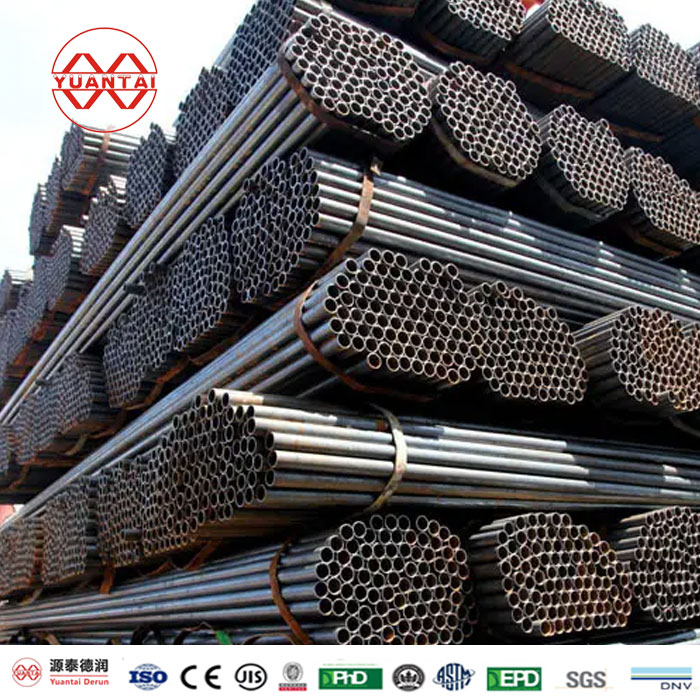
Scaffold Steel Pipe
Introduction to scaffold steel pipe Scaffold steel pipes are generally called scaffold pipes, which is a special term used by people in building or construction. Scaffold steel pip […]
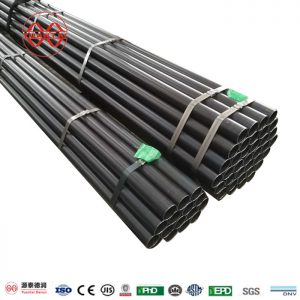
Round Welded Pipe
Since the 1930s, with the rapid development of continuous rolling production of high quality strip steel and the progress of welding and inspection technology, the quality of weld […]
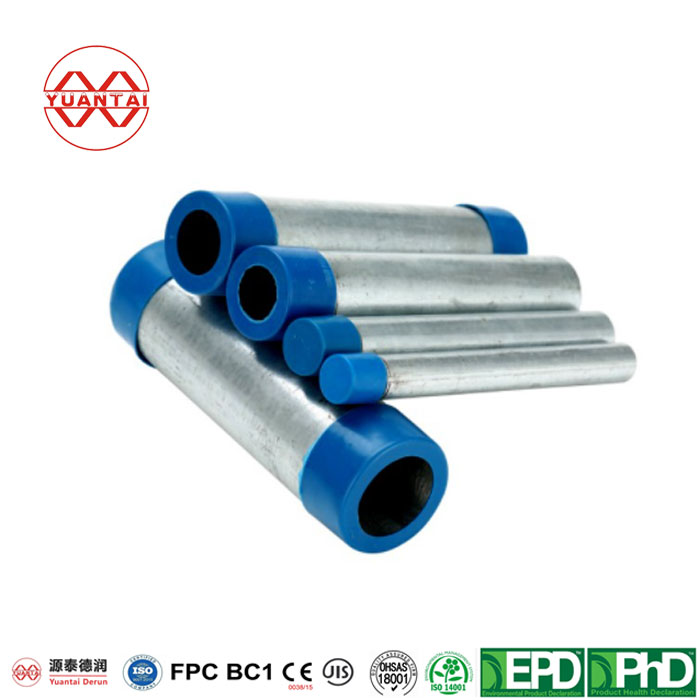
Hot Dip Galvanized Round Steel Pipe
Yuantai Derun Steel Pipe Manufacturing Group produces hot-dip galvanized round steel pipes, which are sold directly by manufacturers, support customization, and have guaranteed qua […]
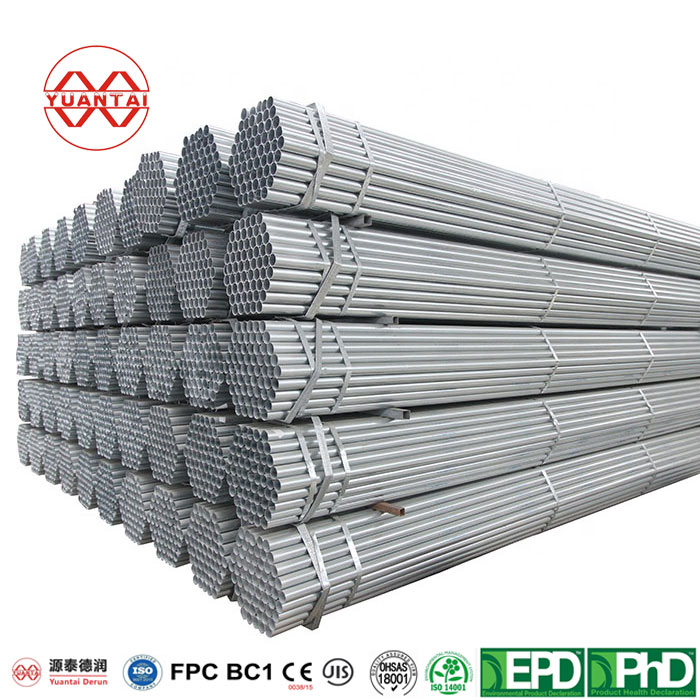
UL797 American Standard Certified EMT Threading Pipe EMT Pipe
OD(outer diameter): 22mm-112mm Thickness: 0.75- 3 mm Place of Origin: Tianjin, China Application: Structural type or fluid transportation Certification:CE,LEED,BV,PHD&EPD,DNV,B […]
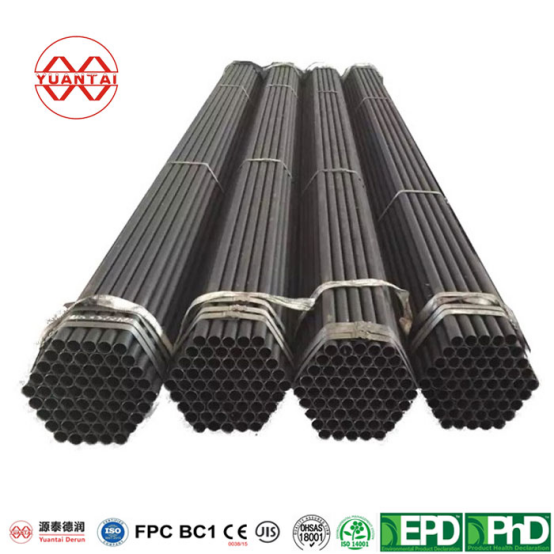
ERW Round Steel Pipe
Standard:Hollow section:ASTM A500/501,EN10219/10210, JIS G3466,GB/T6728/T3094/3091,CSA G40.20/G40.21 Section Shape: round OD(outer meter): 10.3mm-609mm Application: Structural type […]
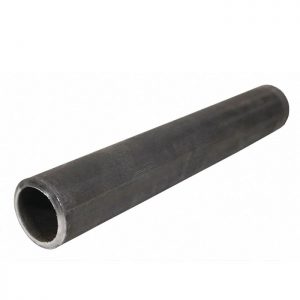
Round Seamless Steel Pipe
Seamless steel pipe is a steel pipe formed by piercing the whole round steel, and there is no weld on the surface, which is called seamless steel pipe. According to the production […]
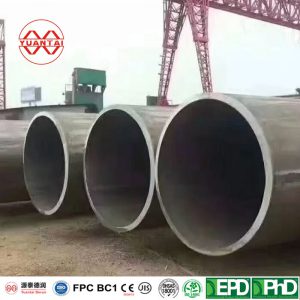
LSAW Steel Pipe(Longitudinally Submerged Arc Welding Tube)
Lsaw Steel Pipe(Longitudinally Submerged Arc Welding Tube) JCOE is a pipe making technology for the production of large diameter thick wall steel pipes. It mainly adopts the produc […]
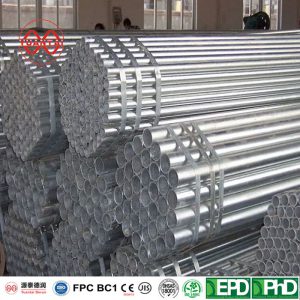
Pre Galvanized Round Steel Pipe
The round pipe with galvanized strip is made of galvanized strip steel, which is generally 0.6MM-2MM. It is processed and formed at one time, with the specification of 15 * 15-100 […]
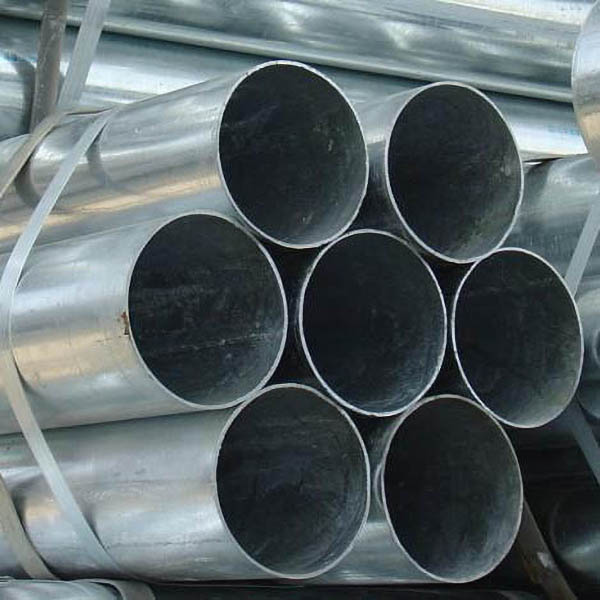
GI Circular Steel Pipe
Galvanized round steel pipe Generally, there are two major categories: pre galvanized round steel pipes and hot-dip galvanized round steel pipes. Hot dip galvanized pipe is to make […]